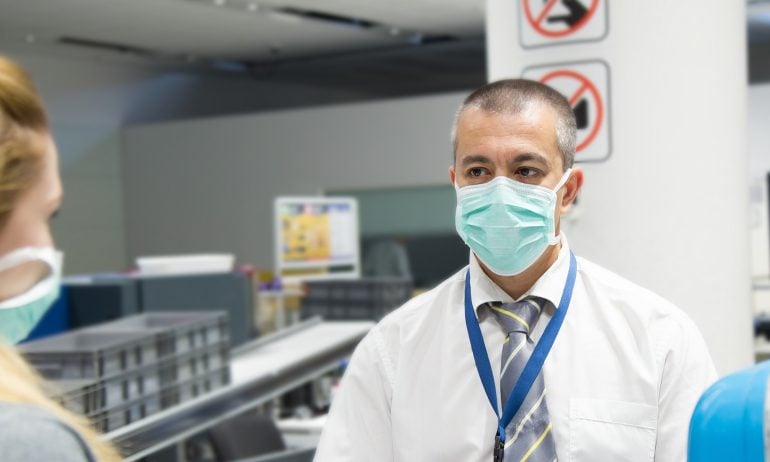Airline Health Policies During COVID-19: What You Need to Know

Many, or all, of the products featured on this page are from our advertising partners who compensate us when you take certain actions on our website or click to take an action on their website. However, this does not influence our evaluations. Our opinions are our own. Here is a list of our partners and here's how we make money.
Note: As you plan travel during the coronavirus pandemic, please check the CDC and State Department websites for current guidance and travel restrictions.
If you have air travel planned, you may be curious (and potentially worried) about the safety measures enacted by airlines and airports to mitigate the risk of transmission of COVID-19.
Early in the pandemic, and throughout 2020 and 2021, safety policies varied widely from one airline to another. How and when they were screening customers, sanitizing aircraft, and enforcing rules (such as mask requirements) to protect customers were just some of the ways the airlines' policies differed. However, airlines have mostly aligned and stabilized in terms of their safety procedures.
Bear in mind that the safety of air travel remains uncertain with or without these policies in place, and that you should not take the assurance of the airlines, which have a vested interest in getting you on board, as health guidance. Heed the advice of the Centers for Disease Control and Prevention and delay travel until you are fully vaccinated.
What you need to know
Vaccinated employees: In August, United Airlines announced it will require all employees to be vaccinated against COVID-19 by late October, although that timeline may move up. Frontier airlines also announced employees will need to be vaccinated by Oct. 1 or be tested on a weekly basis. Southwest, Delta and American, while encouraging and incentivizing employees to get vaccinated, have said they do not have immediate plans to require it. Delta did institute a policy in the spring requiring new hires to be vaccinated, but the policy doesn't apply to current employees.
No more blocked seats: As of May 1, 2021, no major U.S. airline is blocking seats. Planes can be booked to full capacity.
Boarding the plane: Normal boarding procedures have returned. For a period of time, many airlines were boarding back to front to reduce traveler contact, but this is no longer the case.
Cleaning and filtration: Airlines have introduced enhanced aircraft cleaning and air filtration protocols. They have also reduced or changed in-flight service to limit contact with crew members. This is great to see, but it does not mean that getting on these planes is “safe.” Face-covering policies are equally or more important.
Eating and drinking: Food and beverage service varies by airline. Many are not serving alcohol for the time being.
» Learn more: The best airlines to fly during COVID-19
Airline-specific COVID policies
To dive deeper into each airline's COVID-era policies, click through to the following external links:
How to maximize your rewards
You want a travel credit card that prioritizes what’s important to you. Here are some of the best travel credit cards of 2024:
Flexibility, point transfers and a large bonus: Chase Sapphire Preferred® Card
No annual fee: Bank of America® Travel Rewards credit card
Flat-rate travel rewards: Capital One Venture Rewards Credit Card
Bonus travel rewards and high-end perks: Chase Sapphire Reserve®
Luxury perks: The Platinum Card® from American Express
Business travelers: Ink Business Preferred® Credit Card
on Chase's website
1x-5x
Points60,000
Pointson Chase's website
1.5%-5%
CashbackUp to $300
2x-5x
Miles75,000
Miles




